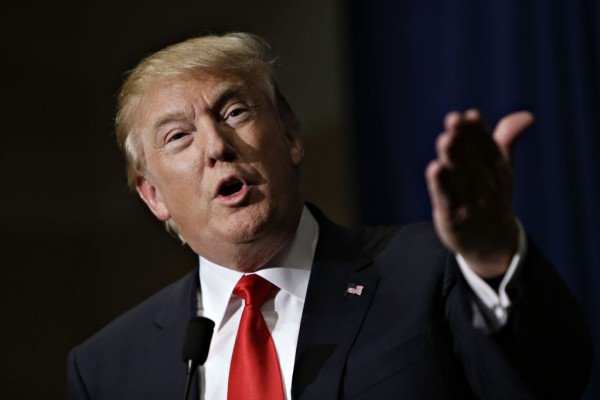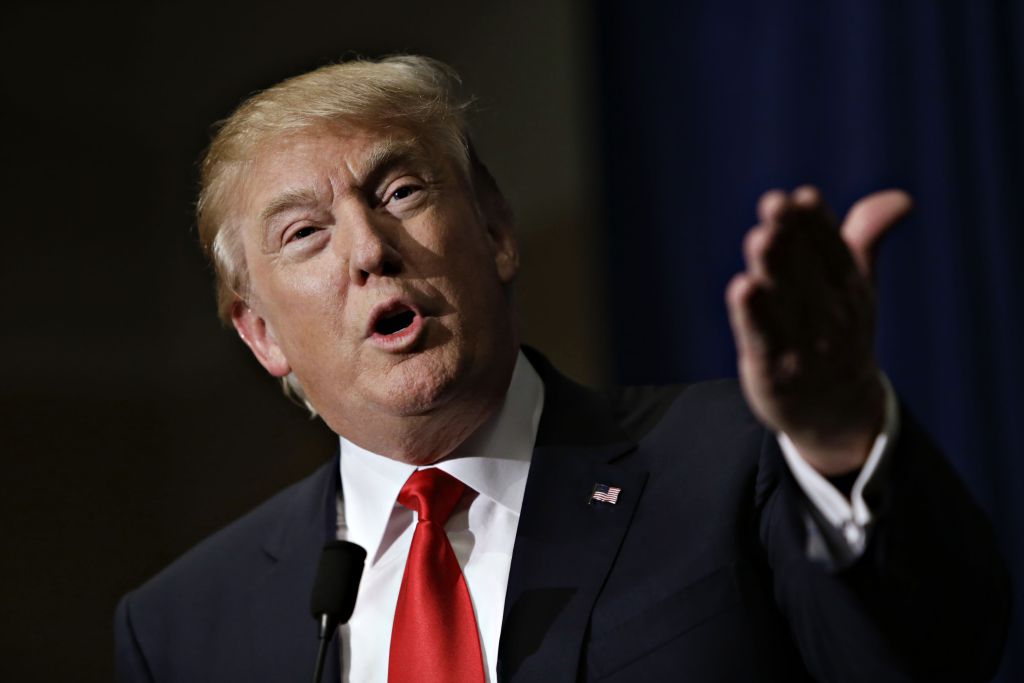Republican presidential hopeful Donald Trump has detailed his foreign policy just one day after winning in five primaries.
In a speech in Washington on April 27, Donald Trump said he would pursue an “America First” policy.
The New York businessman called the foreign policy of President Barack Obama’s administration “a complete and total disaster”.
On April 26, Donald Trump called himself the Republican “presumptive nominee” after his primary wins.
He claimed victories in Connecticut, Delaware, Rhode Island, Maryland and Pennsylvania.
Before the speech, Donald Trump promised it would not be a “Trump doctrine”, and that he would retain some flexibility to make changes if elected.

Much of his speech focused on what he called the “weakness, confusion and disarray” of the Obama administration, and his hope of reversing it.
Before the audience in Washington, he vowed to “shake the rust off America’s foreign policy”.
Donald Trump said that, under his administration “their days are numbered – I won’t tell them when, and I won’t tell them how”.
He had previously said he would weaken ISIS by cutting off their access to oil, and supported waterboarding and other strong interrogation methods against them. He did not return to these proposals on today’s speech.
“Containing the spread of radical Islam must be a major foreign policy goal of the United States and indeed, the world,” Donald Trump said, adding that he would work closely with US allies in the Middle East to combat extremism.
He also said that new talks would be sought with the US’ allies in NATO to try and reshape the organization’s structure and discuss a “rebalancing” of US financing towards it.
Donald Trump said he would also aim to hold talks with Russia to seek common ground, possibly over Islamist extremism.
“Some say the Russians can’t be reasonable,” he said.
“I intend to find out.”
Donald Trump said China “respects strength, and by letting them take advantage of us economically like they are doing, we are losing all their respect”. He said he would seek to “fix our relations with China” but did not suggest how.
On US allies, he said: “The countries we defend must pay for the cost of this defense.
“If not, the US must be prepared to let these countries defend themselves. We have no choice.”
Speaking to the New York Times last month about the US-Japan relationship, Donald Trump said: “If we’re attacked, they do not have to come to our defense, if they’re attacked, we have to come totally to their defense. And that is a, that’s a real problem.”
Donald Trump once said he was his own best foreign policy adviser, but, in recent months, has expanded his backroom team. Some of his appointments have proved controversial.
His team is led by Republican Senator Jeff Sessions of Alabama.
Another member, retired Gen. Joseph Schmitz, resigned from the military in 2005 amid accusations of misconduct. However, Joseph Schmitz was never charged with wrongdoing.
Another adviser, Walid Phares, was criticized when he was named as part of Mitt Romney’s foreign policy team in 2011.
Muslim advocacy groups took issue with Walid Phares’s close ties to right-wing Christian militia groups during the Lebanese civil war.
